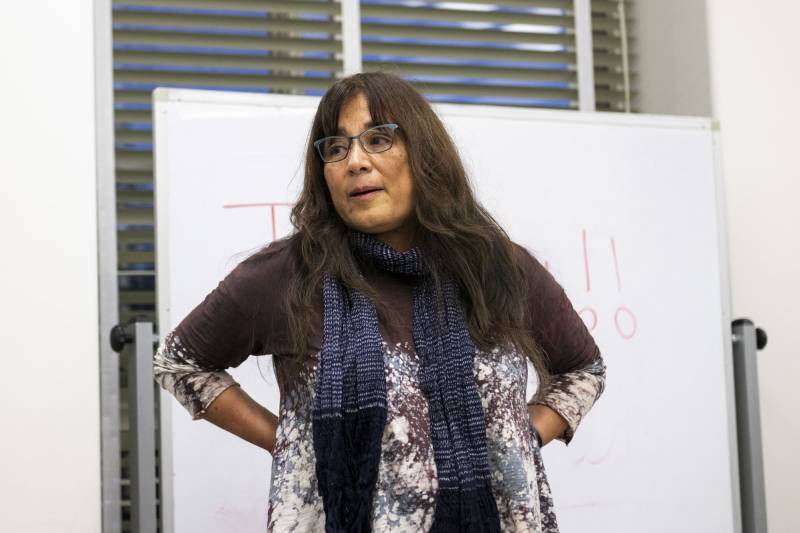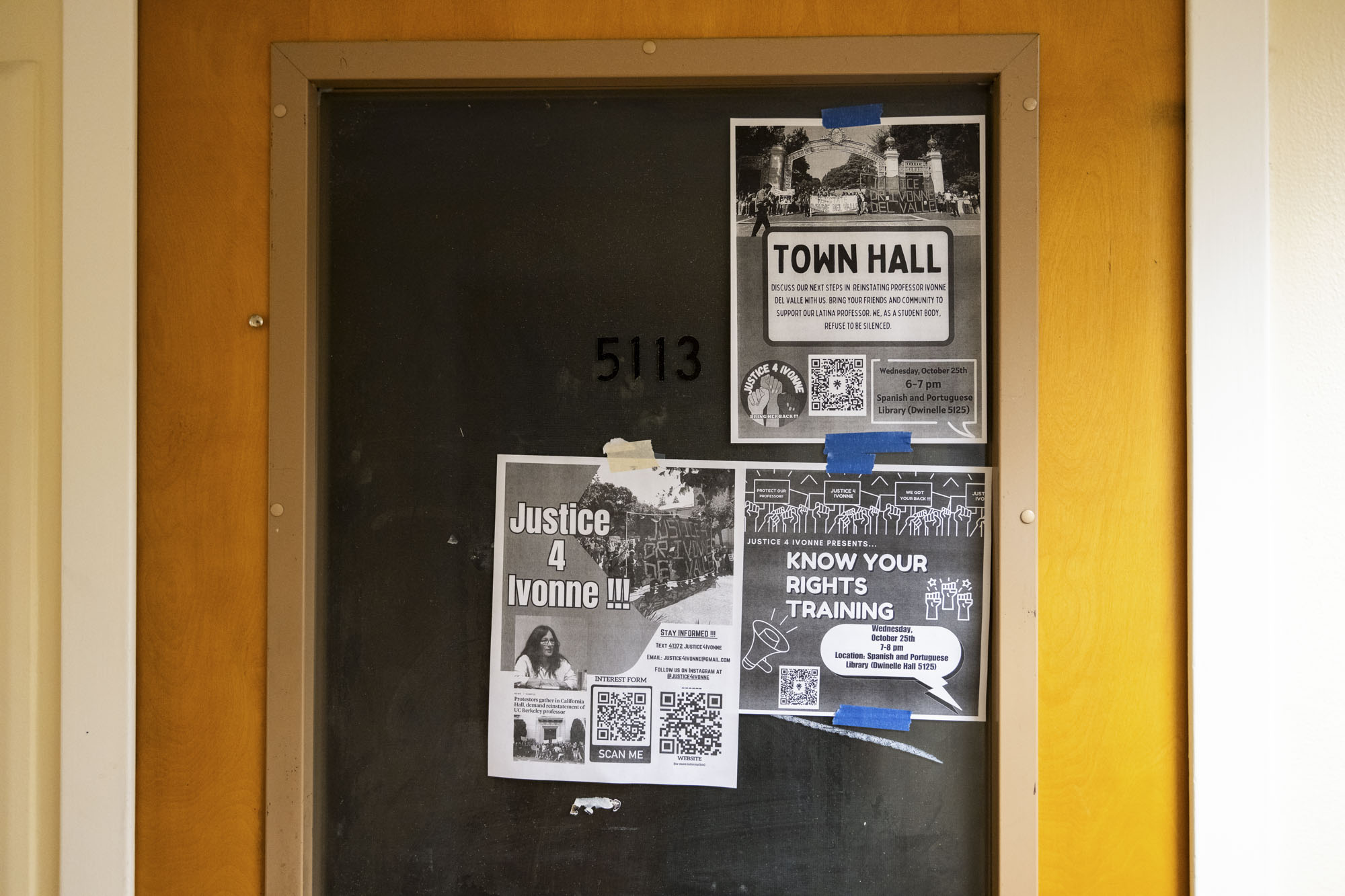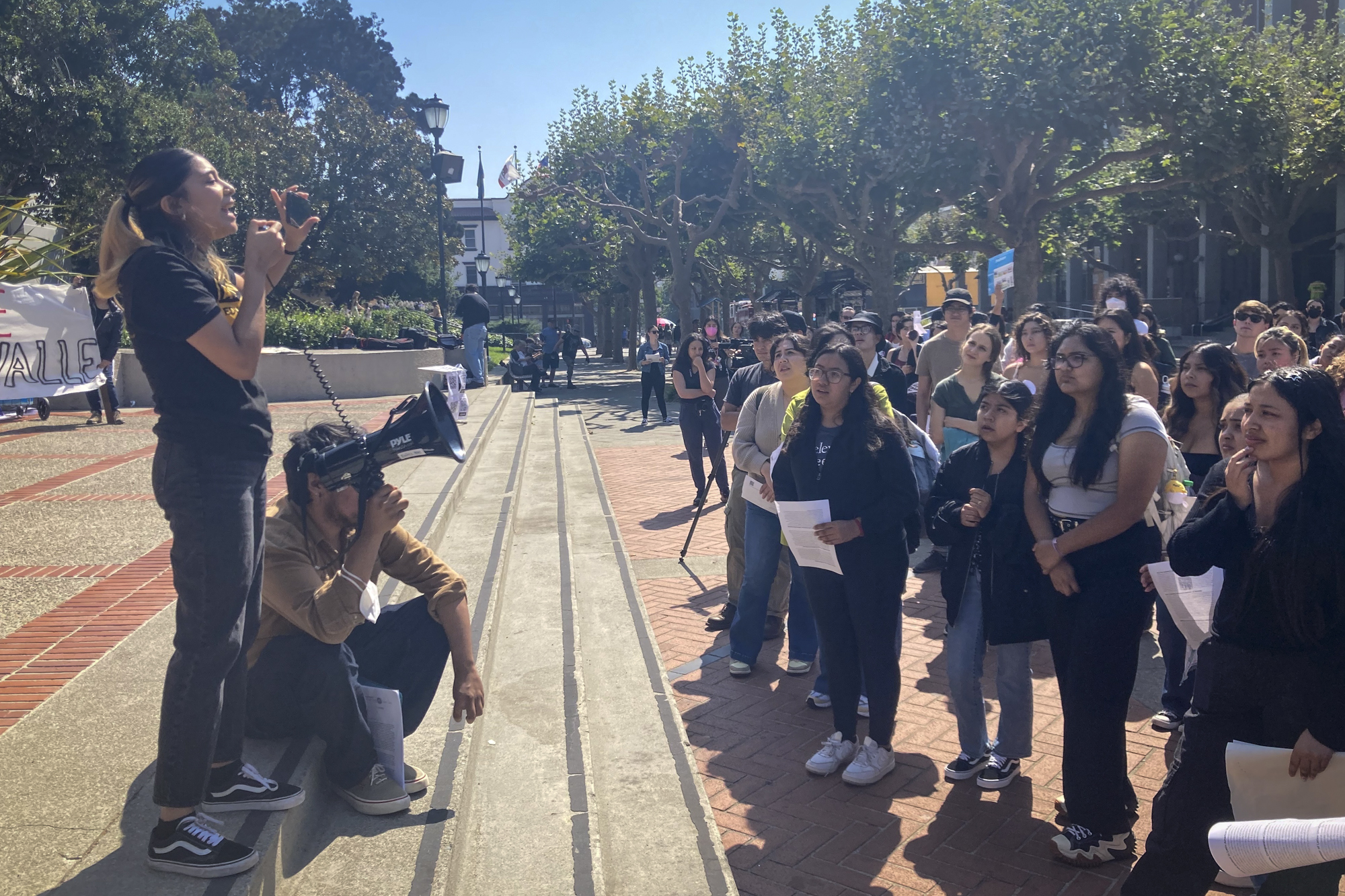KQED could not substantiate del Valle’s allegations that her devices had been hacked by Clover or anyone else. She provided documentation of an analysis of her laptop and cell phone, which found the phone had been compromised, but the computer showed no evidence of hacking or cyber attack. The analysis falls short of proving that any particular person, including Clover, illegally accessed her devices.
In the 2019 investigative report, the UC Berkeley Office for the Prevention of Harassment and Discrimination found there was “insufficient evidence to support a finding” that Clover had “engaged in any hacking of Respondent’s electronic devices and is harassing or stalking her online.”
Del Valle says after writing messages to friends or family members on her phone or computer, tweets from the professor on similar topics would appear. However, documentation provided by del Valle does not prove that anyone has eavesdropped on her messages.
She provided KQED 261 pages in multiple documents that she addressed to a UC Berkeley administrator and review committee. The documents include several dozen instances of why she believes she was hacked. For example, she cites writing a message to a relative in April 2019 mentioning trucks, and then a Twitter account she claimed belonged to Clover tweeted about “similar trucks” that same day.
The investigator also wrote that substantiating the hacking claims was outside their scope and did not “negate the preponderance of the evidence” that del Valle’s conduct “would cause a reasonable person to fear for their safety or suffer substantial emotional distress.”
The earliest investigated complaint goes back to May 2018, when del Valle, who met Clover after he gave a talk at UC Berkeley, began sending him Twitter messages saying someone was bothering her and calling her names, according to the investigative report.
In December that same year, del Valle acknowledged in the investigation knocking on Clover’s apartment door and telling him she “was not leaving until he opened the door and explained what he was doing by hacking her.”
While sitting outside Clover’s apartment, according to the report, del Valle slid a note under his door that said, “If you make me leave, it’ll be worse” and then later left him a voicemail, saying, “I can do whatever the fuck I want piece of shit” and “You need to still call me and apologize or you’ll see what I’m going to do.”
Soon after that, del Valle vandalized Clover’s car and residence, investigators found. Del Valle also acknowledges those actions in the report.
Clover told investigators he moved out of his apartment building in large part because of a “persistent sense of and considerable lack of safety.”
He said in the report that the whole experience has been psychologically destructive. He described a hyper vigilance that is “accompanied by an anxiety that is similarly corrosive. It’s miserable and I don’t think it will ever go away.”
In a settlement agreement in 2020, del Valle agreed not to contact Clover or any of his friends, family, relatives or students. But the following year, del Valle violated that agreement, according to the second investigation conducted by UC Berkeley in 2021, when she left messages outside and near the home of Clover’s mother, among other violations.
“I do understand it’s hard to side with me in that moment, and I was punished for that without salary and benefits,” del Valle said.
Following that violation, Del Valle was suspended for nine months beginning in November 2021. In its third investigation, the university then found she had again violated the no-contact order in 2022. She said that in the most recent violation she was asking for help from the police on social media, and that she had shared a photograph of Clover’s partner online.


